All of us will age. Sometimes aging is a positive experience as our lives tend to get enriched by fulfilling careers, growing families and the wisdom we gain from living life each day. However, there comes a point when aging begins to have its drawbacks. Some of these are negligible, such as laugh lines and a slower metabolism. However, some parts of the aging process are more difficult to deal with, such as health problems or memory issues. Though most of our readers are years away from experiencing aging issues that will have serious effects on their lives, many of them are already having to make decisions for their aging parents or grandparents who are experiencing these issues.
Being a caregiver for an aging loved one is not an easy task, especially if they need frequent supervision or advanced medical care. Fortunately, there are plenty of experts in the Omaha area who can help you with a number of the tasks you’ll need to handle. First and foremost, they can help arm you with the education you need to make the best decisions.
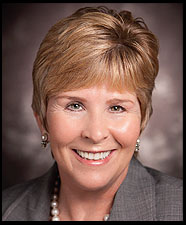 “Immanuel Communities is striving to educate consumers on all the choices available for senior housing and senior services,” explains Roxann Rogers Meyer with Immanuel Communities. “According to LeadingAge, the American Association of Housing and Services for the Aging, there is an ocean of aging-services out there but finding the best fit is a real challenge. Understanding what help is available, the level of care needed, and that seniors’ circumstances are constantly changing can be confusing.
“Immanuel Communities is striving to educate consumers on all the choices available for senior housing and senior services,” explains Roxann Rogers Meyer with Immanuel Communities. “According to LeadingAge, the American Association of Housing and Services for the Aging, there is an ocean of aging-services out there but finding the best fit is a real challenge. Understanding what help is available, the level of care needed, and that seniors’ circumstances are constantly changing can be confusing.
Our goal is to help guide seniors and their families as they make important decisions regarding retirement living choices. We can navigate the resources and choices to help families make the right decision that fits their specific situation.”
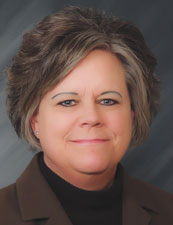 “The best advice for an adult child of aging parents is reassurance: “You are not alone.”,” states Jude Treinen with Comfort Keepers Omaha/Council Bluffs. “Even those of us who have been in the eldercare industry for many years work diligently, daily to keep informed and knowledgeable. Although it may seem overwhelming, find a trusted advisor and ask a million questions.”
“The best advice for an adult child of aging parents is reassurance: “You are not alone.”,” states Jude Treinen with Comfort Keepers Omaha/Council Bluffs. “Even those of us who have been in the eldercare industry for many years work diligently, daily to keep informed and knowledgeable. Although it may seem overwhelming, find a trusted advisor and ask a million questions.”
Many times, the first step in decision-making does not involve moving, but instead getting extra help to assist your loved one in their home. “Folks seek extra help for their parents for several reasons,” Jude continues. “Following a surgery or hospitalization, when companionship is needed; for personal care including bathing and dressing, even assisting the family during a hospice situation. Looking at options before a crisis is always a good idea.”
Each senior is, of course, different and what might be best for one is not necessarily best for another. “The old standard uses words such as ‘least restrictive, most safe and greatest autonomy’ for the senior,” explains Jude. “For instance, one would not place an ambulatory, cognitively-oriented, socially-connected person in a skilled nursing facility. Decisions about the frequency and intensity of home health are best decided by the senior and family. A trusted advisor such as a physician or trust attorney can also frequently guide folks to others who can present options.”
If you do decide that working with a home health company is the best option for your loved one, you next need to look at choosing the best one for you and your loved one’s needs. “Choosing a homecare company involves communication and trust,” states Jude. “All Comfort Keepers are actual employees: bonded, insured and background-checked thoroughly. We have over 130 CNAs and Companions in the Omaha and Council Bluffs area, so finding a good match for you is a priority.”
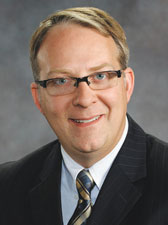 It can be a difficult situation when you know it’s time for your loved one to leave a home they have probably spent many years and raised a family in. However, it’s often something that needs to be done. “Have an honest discussion with your parents when they are no longer safe in their home,” says Jim Janicki with Hillcrest Health Systems. “If they refuse to listen, then enlist the support of their doctor to explain why they need assistance. The worst thing an adult child can do is to do nothing. The results can be regrettable. I feel the most important considerations for living decisions are what the senior wants and where they are safe. If an aging adult wants to continue living at home, then options are available to provide in-home assistance with bathing, dressing, personal care, medication help, housekeeping, maintenance, companionship, and even transportation. However, those who desire to live with other active adults may choose a maintenance-free community with a continuum of care to meet their needs while they enjoy an active lifestyle. Also, older adults with dementia may not be safe in their homes without 24-hour supervision, so moving to a memory-support assisted living residence may be the best option for them.”
It can be a difficult situation when you know it’s time for your loved one to leave a home they have probably spent many years and raised a family in. However, it’s often something that needs to be done. “Have an honest discussion with your parents when they are no longer safe in their home,” says Jim Janicki with Hillcrest Health Systems. “If they refuse to listen, then enlist the support of their doctor to explain why they need assistance. The worst thing an adult child can do is to do nothing. The results can be regrettable. I feel the most important considerations for living decisions are what the senior wants and where they are safe. If an aging adult wants to continue living at home, then options are available to provide in-home assistance with bathing, dressing, personal care, medication help, housekeeping, maintenance, companionship, and even transportation. However, those who desire to live with other active adults may choose a maintenance-free community with a continuum of care to meet their needs while they enjoy an active lifestyle. Also, older adults with dementia may not be safe in their homes without 24-hour supervision, so moving to a memory-support assisted living residence may be the best option for them.”
“We encourage seniors and their families to plan ahead,” says Roxann Rogers Meyer with Immanuel. “The earlier you explore your senior housing options, the more choices and control you will have over your future. Researchers have found that seniors who move into a retirement community when they are healthy and independent will live five to seven years longer than if they wait until they have a health crisis. We find that residents are pleasantly surprised at how much they enjoy independent living as they take advantage of our lifestyle programs, our exceptional dining program and the stimulating activities and events. An added bonus is the fellowship and new friendships that are forged.”
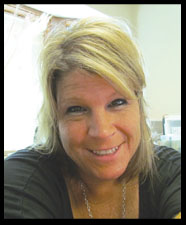 Lisa Arp with SilverRidge agrees by saying, “Don’t wait too long. The longer you wait, the less likely your loved one will be able to be in an assisted living community. There is still the opportunity to live in an environment that is not institutional or clinical, but that features apartment-style living. The important thing is to do the research ahead of time. Even if the signs that your loved one is showing are not too severe, having the research done and readily available when you need it is important. You never know when they may ask about retirement communities and you can be prepared ahead of time to give them some information to think about.”
Lisa Arp with SilverRidge agrees by saying, “Don’t wait too long. The longer you wait, the less likely your loved one will be able to be in an assisted living community. There is still the opportunity to live in an environment that is not institutional or clinical, but that features apartment-style living. The important thing is to do the research ahead of time. Even if the signs that your loved one is showing are not too severe, having the research done and readily available when you need it is important. You never know when they may ask about retirement communities and you can be prepared ahead of time to give them some information to think about.”
When it comes to choosing a community, Lisa says, “I think this is dependent on individual preferences and needs. There are some misconceptions on how much care facilities provide. Some go higher in levels of care than others. Some are corporately owned and others are privately owned. The key is research. Sometimes location is a factor, but I would visit the community to see if it is a fit for the individual. The atmosphere/environment of a community is something that is often overlooked when searching for the right fit. You should also be careful with communities that have point systems for level of care or a large number of levels in their care plans. In the long run, all of those a la carte charges can add up to a hefty bill before you know it. Ask a lot of questions and give scenarios as examples for care costs to see if it is in your loved one’s budget. It’s not about the bottom line, it is about quality of care!”
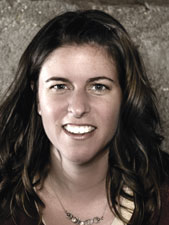 Looking at the big picture and deciding what is best for your parents’ overall health (both mental and physical) is the most important thing when helping them make decisions. Getting some outside help to focus your efforts is always a good idea. Michaela Williams with Care Consultants for the Aging says, “I help families look at the whole picture—what they or their loved one both want and need for themselves, where they want to receive their services, how they would like care done and who they will have do that care. It is helpful to understand not only the person you are assisting, but also the family and the environment.”
Looking at the big picture and deciding what is best for your parents’ overall health (both mental and physical) is the most important thing when helping them make decisions. Getting some outside help to focus your efforts is always a good idea. Michaela Williams with Care Consultants for the Aging says, “I help families look at the whole picture—what they or their loved one both want and need for themselves, where they want to receive their services, how they would like care done and who they will have do that care. It is helpful to understand not only the person you are assisting, but also the family and the environment.”
When a representative from Care Consultants works with a family, especially if they are staying in the home, they always encourage them to LISTEN to each other. “It is very difficult for parents to have their children care for them, yet alone they admit they need extra care,” Michaela explains. “Sometimes is it less challenging if a child suggests that they are tired and have the need for someone else to come in and perform the care. This takes the focus/guilt off the person actually needing the care. Introduce a caregiver early and slowly. Sometimes just a couple of hours a week sets the stage for more detailed care in the future. Be proactive and again, listen!”
Fortunately, the senior living industry continues to progress in a more positive direction every year. “I see better communication when several ‘services’ are in place with one client,” says Michaela. “Hospitals and rehabs are working to decrease the ‘under 30 day’ readmits. When a person goes home with home health care, the caregivers know much more about what is expected of them. I also see the families suggesting and seeking outside help somewhat earlier, whether in the home or at a senior living campus. The stigma of needing ‘help’ is fading.
Omaha is so fortunate to have quality services. There is always a fit for everyone. It is so vital that there is a comfort level between the caregiver and the family. This is possible if research and decisions are made before a crisis or during a crisis. Care Consultants for the Aging has an excellent ElderCare Resource Handbook for just that purpose and it can be obtained by contacting their office or website: http://www.careconsultants.com.”
Jim Janicki with Hillcrest Health Systems sums up by saying, “I feel the most important aspect of senior care is meeting the needs of residents with a focus on their individuality. When the staff builds family-life relationships with residents, they know what their residents’ preferences are and what they enjoy doing. Honoring these preferences empowers residents and enables them to live healthier, more comfortable lives within the care community.”
Counseling
 The aging process is not easy, either on the person experiencing age-related issues or the loved ones or caregivers of the elder. Counseling can sometimes help ease the process and provide some comfort to those experiencing emotional turmoil. Mindy Crouch with Pando Geriatric Counseling, P.C. offers mental health counseling in nursing homes, assisted living communities and for homebound patients. “We focus on grief recovery counseling, cognitive behavior counseling, animal-assisted therapy and supportive therapies,” says Mindy. “Everyone needs someone to talk to and it is hard sometimes for the aging population to get around for socialization and counseling. We can come to them and reduce the stress of getting counseling. We also have an office where we can offer ‘in office’ sessions for family members. We can hold family sessions with their loved ones and individual counseling to help the caregivers through this time. We can also offer education seminars at facilities to help the caregivers better interact with the residents.”
The aging process is not easy, either on the person experiencing age-related issues or the loved ones or caregivers of the elder. Counseling can sometimes help ease the process and provide some comfort to those experiencing emotional turmoil. Mindy Crouch with Pando Geriatric Counseling, P.C. offers mental health counseling in nursing homes, assisted living communities and for homebound patients. “We focus on grief recovery counseling, cognitive behavior counseling, animal-assisted therapy and supportive therapies,” says Mindy. “Everyone needs someone to talk to and it is hard sometimes for the aging population to get around for socialization and counseling. We can come to them and reduce the stress of getting counseling. We also have an office where we can offer ‘in office’ sessions for family members. We can hold family sessions with their loved ones and individual counseling to help the caregivers through this time. We can also offer education seminars at facilities to help the caregivers better interact with the residents.”
“Our services are covered by most insurances, which makes our services cost effective and manageable for most people,” continues Mindy. “Our body is all connected. It is amazing how powerful the mind is and it is important for people to know how anxiety, depression, stress and much more plays into our health issues. Going to counseling can reduce some of those problems and create a healthier lifestyle.”
Medications
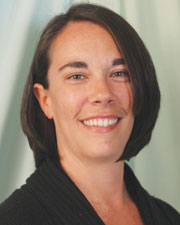 Some seniors experience health problems that require them to have long-term medication and it’s often a good idea to look into specialists who can help make this a less intrusive process. Shanna Shafer with Vascular Access Plus explains, “Vascular Access Plus can assist seniors in making decisions that best meet their needs, and offer specialty knowledge when it comes to coordinating vascular access needs with treatment. For those seniors that may require long term antibiotics or other IV medications, a PICC line can be the best choice for medication delivery. Once consulted, the nurses at Vascular Access Plus can assess which type of IV access is most appropriate, and can place the most appropriate device immediately. The nurses of VA+ provide services in the hospital, nursing home, retirement facilities and clinic setting, which allows us to serve our patients where it is most convenient for them. As our services expand, we expect to begin placing and caring for more IVs and other types of vascular access devices in the home as well, which will decrease costs to the patient and increase the quality of care provided. We feel that the use of specialty nursing services, such as those provided by VA+, is essential to improving health care for our nation’s seniors. Our nurses can provide seniors with information about the best options for care and provide services that improve treatment, decrease costs, and result in the outcomes our patients deserve.”
Some seniors experience health problems that require them to have long-term medication and it’s often a good idea to look into specialists who can help make this a less intrusive process. Shanna Shafer with Vascular Access Plus explains, “Vascular Access Plus can assist seniors in making decisions that best meet their needs, and offer specialty knowledge when it comes to coordinating vascular access needs with treatment. For those seniors that may require long term antibiotics or other IV medications, a PICC line can be the best choice for medication delivery. Once consulted, the nurses at Vascular Access Plus can assess which type of IV access is most appropriate, and can place the most appropriate device immediately. The nurses of VA+ provide services in the hospital, nursing home, retirement facilities and clinic setting, which allows us to serve our patients where it is most convenient for them. As our services expand, we expect to begin placing and caring for more IVs and other types of vascular access devices in the home as well, which will decrease costs to the patient and increase the quality of care provided. We feel that the use of specialty nursing services, such as those provided by VA+, is essential to improving health care for our nation’s seniors. Our nurses can provide seniors with information about the best options for care and provide services that improve treatment, decrease costs, and result in the outcomes our patients deserve.”
Wills, Trusts and Other Legal Documents
Wills, trusts and other documents such as Powers of Attorney are important for anyone to have, but it gets more crucial as you get older. Not only does the chance of death or incapacitation increase as you age, but you also have more assets that need to be allocated as you get older and you also need to have directives in case you need someone to make medical decisions for you. It can all be a little overwhelming, especially if your senior loved one has never considered these documents or if they are very out of date. However, the only decision they really need to make is which attorney they would like to work with and the attorney can take it from there. Working with the proper attorney who has knowledge and experience in estate planning is the best way to put both you and your loved one at ease knowing that all the proper documentation is in place should something occur.
Being a caregiver for an aging loved one is certainly not easy. However, if you plan early and work with the proper professionals, you can turn the process into a positive one and know that you are doing everything you can to help your parent live the happiest, healthiest live they can.

